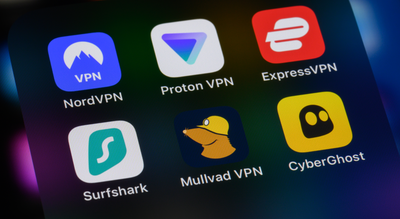How the UAE became the world’s top adopter of VPN technology
The United Arab Emirates has emerged as the global leader in virtual private network (VPN) adoption, with more than 6.1 million VPN app downloads recorded in just the first half of 2025. According to data compiled by Cybernews, the UAE has maintained the highest average VPN adoption rate in the world — 65.78% between 2020 and mid-2025, peaking at 83.52% in 2024. In comparison, Qatar ranks second with a 55.43% average adoption rate, followed by Singapore (38.23%), Nauru (35.49%), Oman (31.04%), and Saudi Arabia (28.93%). The report, based on download statistics for the 50 most popular VPN apps from both Google Play and the Apple App Store, analyzed trends across multiple countries by comparing total downloads to national populations to estimate adoption rates. The findings reveal that the Middle East leads globally in VPN penetration. Of the nine countries surveyed in the region, five rank in the global top ten, while eight appear in the top fifty. By contrast, Africa has the lowest rates, with none of its 21 surveyed nations entering the top 50 list and eight of the ten lowest-ranking countries located on the continent.
Gulf nations dominate VPN usage
The Gulf Cooperation Council (GCC) nations, including the UAE, Qatar, Oman, Saudi Arabia, and Kuwait — account for some of the world’s highest VPN adoption rates. Cybernews’ analysis suggests that this trend stems largely from strict internet regulation policies, content filtering, and state-level monitoring that shape how users access the web. Across the region, governments maintain extensive digital governance frameworks that restrict online material deemed politically sensitive, morally inappropriate, or socially non-compliant. Blocked categories often include:
- Gambling websites
- Adult or sexually explicit material
Another major factor driving VPN reliance is the restriction of Voice over Internet Protocol (VoIP) services, such as WhatsApp calls, Skype, and FaceTime — which are widely used globally but limited in the Gulf. Analysts note that such restrictions support the business models of state-owned telecommunications providers, but they also encourage residents, particularly the UAE’s large expatriate population, to seek VPNs for international communication and entertainment. VPNs are also commonly used to bypass geo-blocks and access international streaming libraries, as well as to maintain online privacy and secure data when using public networks. In the UAE alone, the pattern of heavy VPN usage reflects both rapid population growth and digital behavior trends. The country’s population reached a record 11.44 million in 2025, according to Worldometer, suggesting that the growing number of residents — many of whom are digitally active expatriates, contributes significantly to the high volume of VPN downloads.
Tracking UAE’s VPN download surge: A year-by-year breakdown
Between 2020 and 2025, the UAE consistently dominated global VPN download charts, with figures remaining high across multiple years:
| Year | VPN App Downloads (UAE) |
|---|---|
| 2020 | 6,615,835 |
| 2021 | 4,874,948 |
| 2022 | 6,548,605 |
| 2023 | 7,819,329 |
| 2024 | 9,209,757 |
| 2025 (H1) | 6,118,916 |
If the current download pace continues, total figures for 2025 are expected to exceed the previous year’s record. The trend underscores the country’s strong appetite for digital privacy tools, especially as awareness of online surveillance and data tracking grows worldwide. Other Gulf states also report significant volumes:
- Qatar: 1.23 million downloads in 2025 (down from 1.93 million in 2024)
- Oman: 2.01 million in 2025 (slightly down from 2.03 million in 2024)
- Saudi Arabia: 6.82 million in 2025 (down from 12.5 million in 2024)
- Kuwait: 644,912 in 2025 (compared to over 1 million the year before)
Even with these fluctuations, VPN adoption remains robust across the region, with the UAE continuing to outpace all others.
The legal fine line: When VPN use becomes a crime
While VPN usage itself is legal in the UAE, its misuse is a serious criminal offence under Federal Decree Law No. (34) of 2021 on Combatting Rumours and Cybercrimes. The law explicitly permits VPNs for legitimate purposes, such as corporate security, remote work, or accessing globally available services, but strictly prohibits using them to hide criminal activity, access blocked sites, or disguise one’s identity. Article 10 of the decree, titled “Circumventing the Information Network with the Intention of Committing a Crime,” states:Anyone who circumvents an IP address through the use of another person’s IP, or by any other means, with the intention of committing or preventing the detection of a crime, shall be punished with temporary imprisonment and/or a fine between AED 500,000 and AED 2,000,000. The law also grants authorities the power to block access to specific websites or digital accounts operating within the UAE. This includes content that may compromise national security or sovereignty, affect public order, damage diplomatic relations, or undermine confidence in government institutions. In simpler terms, while UAE residents may install and use VPNs, they must not use these tools to:
- Access or distribute illegal content
- Bypass government restrictions on websites or online services
- Engage in activities that mask illegal behavior or identity
Violations can lead to imprisonment, hefty financial penalties, or both, depending on the severity of the offence.
A broader picture: Privacy, regulation, and digital freedom
Globally, VPN use has surged as individuals and businesses prioritize data protection, anonymity, and unrestricted access to online platforms. Cybernews’ data shows that regions with greater censorship and content regulation, particularly the Middle East, exhibit the highest adoption levels. By contrast, Africa remains at the lower end of VPN usage, with none of its 21 analyzed countries appearing in the global top 50. This stark regional divide highlights how state-level internet control policies continue to shape how citizens navigate and secure their digital lives. In the case of the UAE, the balance between digital freedom and cybersecurity enforcement remains a defining feature of its online environment. As millions continue to rely on VPNs for communication, streaming, and privacy, the country’s laws serve as a reminder that technological convenience does not exempt users from legal responsibility. Go to Source



